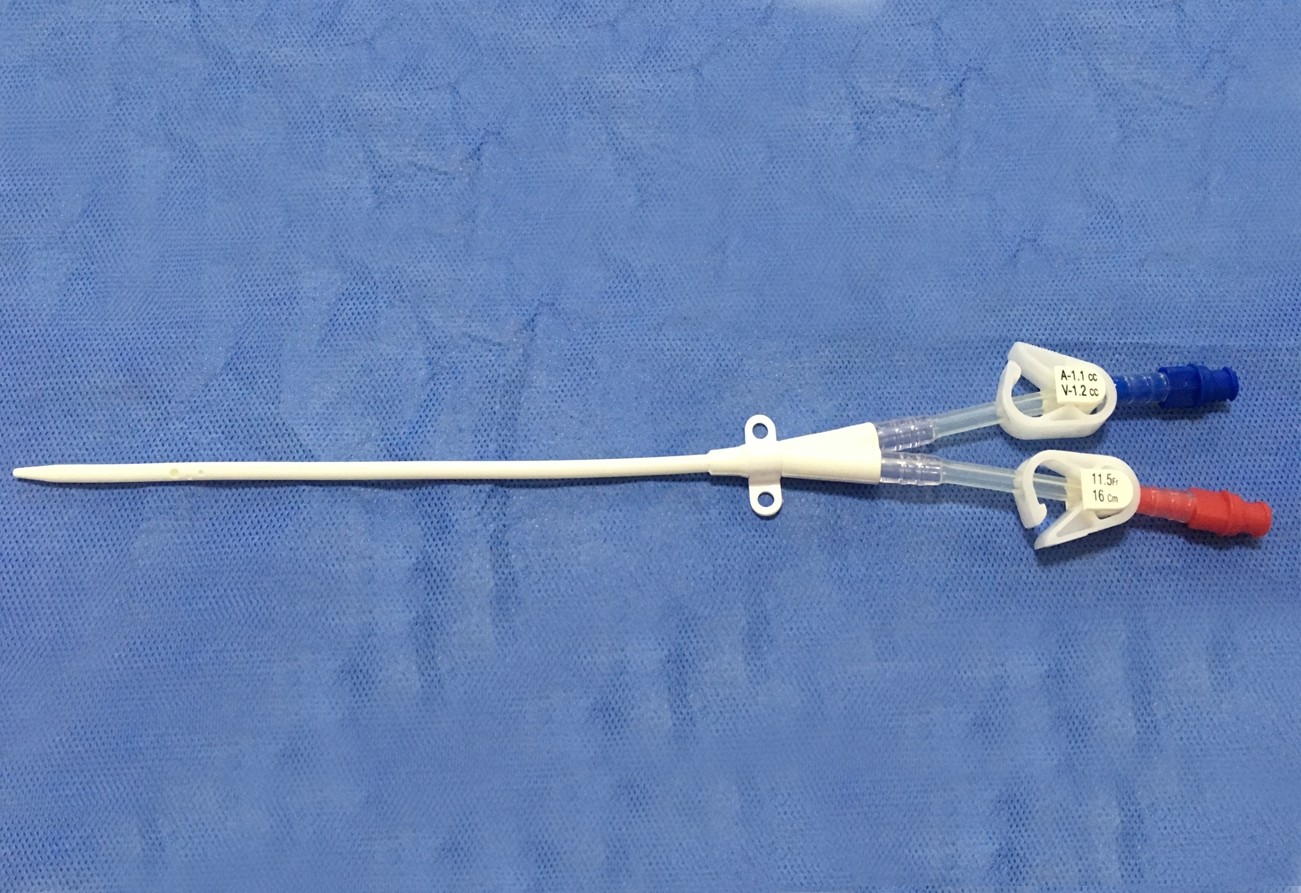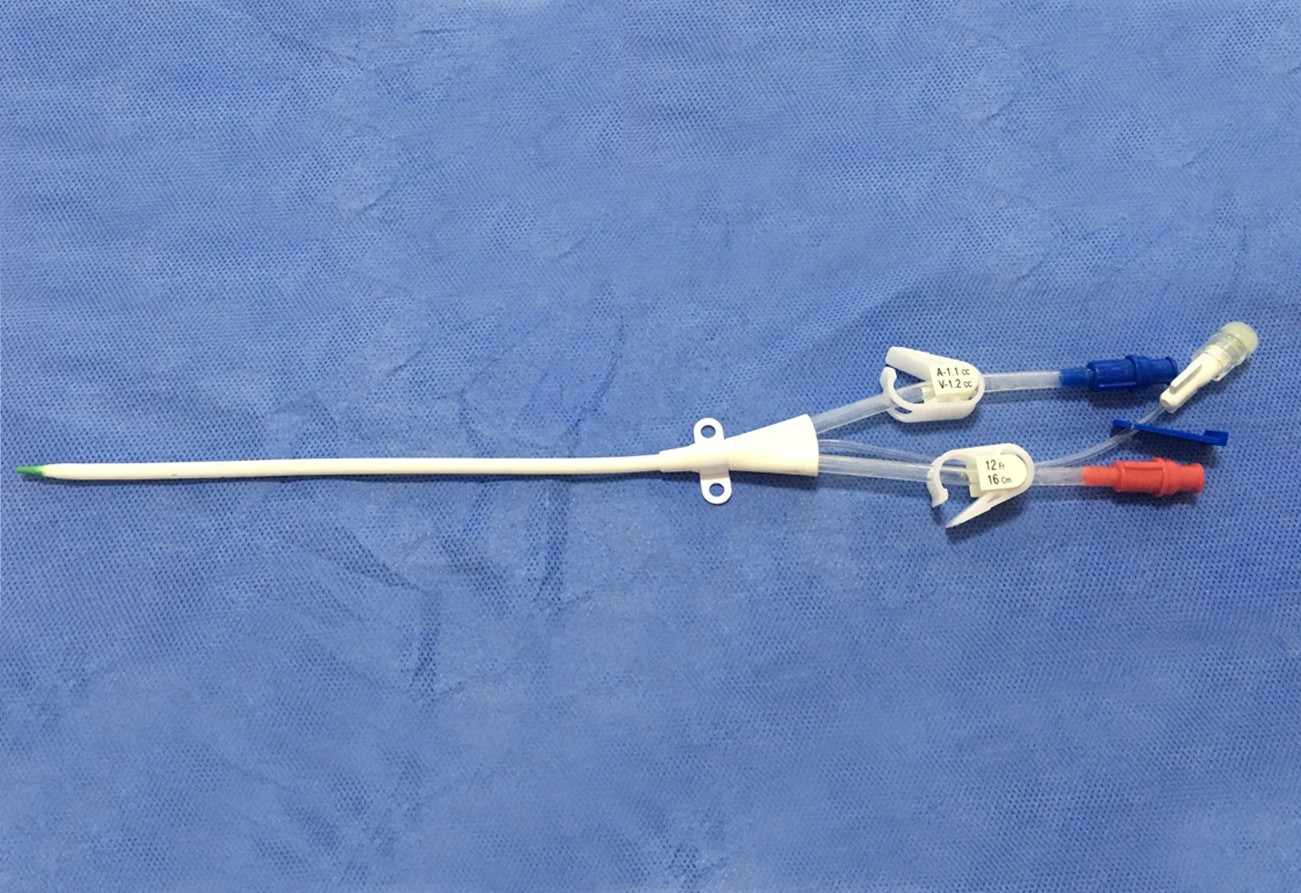The ABLE® Haemodialysis Catheters (HDC) are sterile, single-use only polyurethane catheters designed to build a temporary blood connection between the patient and the dialysis machine for acute and short-term dialysis. They are available in variety of lumen configurations, lengths, French sizes. The multi lumen variants provide dedicated lumens for haemodialysis therapy, infusion therapy, pressure monitoring. The HDC are packaged along with the components and accessories for insertion with Seldinger technique. All products are sterilized by ethylene oxide.
Indication:
Adaptation department:
Main features of the product:
Specification and model:
SSCP
The ABLE® Haemodialysis Catheters may be applicable to the one of following therapy:
- To supply the temporary blood vessel access in haemodialysis treatment;
- Monitor of central venous pressure;
- Continuous or discontinuous venous transfusion.
The Catheter is surgically penetrated into three optional puncture points depended on the clinical requirement with Seldinger Technique.
The Insertion Sites are :
1. Internal jugular vein;
2. Subclavian vein;
3. Femoral vein.
It is possible to be inserted inside the body for no more than 30 days. If duration exceeds 30 days, it may occur the risk of combining the
catheter and inside tissue, which result in serious incident.
1. Infection or cut wound around the puncture area.
2. Dysfunction of blood coagulation.
3. During the anticoagulant treatment.
4. Symptoms of inadaptability to puncture operation, such as Pneumothorax, vein sclerosis.
5. Abnormal or unclear anatomical situation at the penetration area, such as sever emphysema, obviously inadaptability from previous operation
The clinical benefit of the use of HDC’s must be evaluated against the recognized risks and complications of the procedure which include but are not limited to:
1. Infection, necrosis of the puncture point
2. Thrombus
3. Extravasation injury
4. Pheumothorax
5. Bleeding/hematoma
6. Arterial puncture
7. Air embolism
8. Hemothorax
9. Cardiac arrhythmia
10. Occlusion









